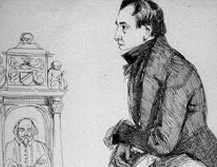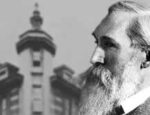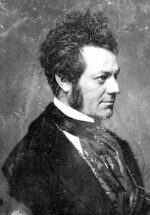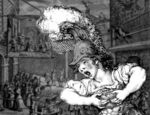Description
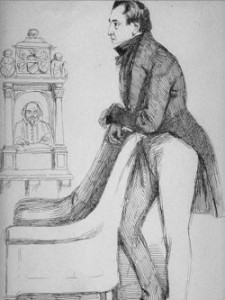
Meet Irish playwright James Sheridan Knowles, author of a play about Caius Gracchus, supporter of the plebeian class. Caius Gracchus was so radical it was censored by the Lord Chamberlain in 1823 before it was allowed on the London stage. But Knowles first wrote it for the Belfast theatre, where it was performed (uncensored) in 1815, to rapturous applause. It spoke directly to the plight of the Irish peasantry. But it also encouraged more British-identified members of the Belfast audience to draw connections between poverty in ancient Rome and modern Britain after the 1813 Corn Laws had kept the price of bread impossibly high; at the end of the Napoleonic Wars there had been a drastic economic slump and widespread famine, especially afflicting the North of both England and Ireland in 1814.
In Act II, two plebeians Titus and Marcus, who support Caius, have a violent altercation with two servants of men of the Senatorial class in the Campus Martius. There is mass civic tumult, the senators’ men raise their weapons, and the plebeian Titus delivers a stirring speech in the prose style which Knowles is imitating from some of Shakespeare’s lower-class characters: ‘We bear your patricians on our backs to victory; we carry them proudly through the ranks of the barbarians! They come off safe—we get the knocks, the pricks, and the scratches. They obtain crowns and triumphs,—we cannot obtain—a dinner! They get their actions recorded—we get ours forgotten! They receive new names and titles—we return to our old ones with which you honour us—“the rabble!—the herd!—the cattle!—the vermin! —the scum of Rome!”’
At the time of the London production of Caius Gracchus, the Lord Chamberlain was the Duke of Montrose, a Scottish Tory absolutely opposed to plays on revolutionary themes. But from 1778 and until the end of December 1823 the actual Examiner of Plays, who shared the work with his young wife Anna Margaretta, was a dour Methodist by name of John Larpent. His previous employment in the royal household had been as an usher and a groom. Knowles’ tomb can be visited in the Glasgow necropolis.

